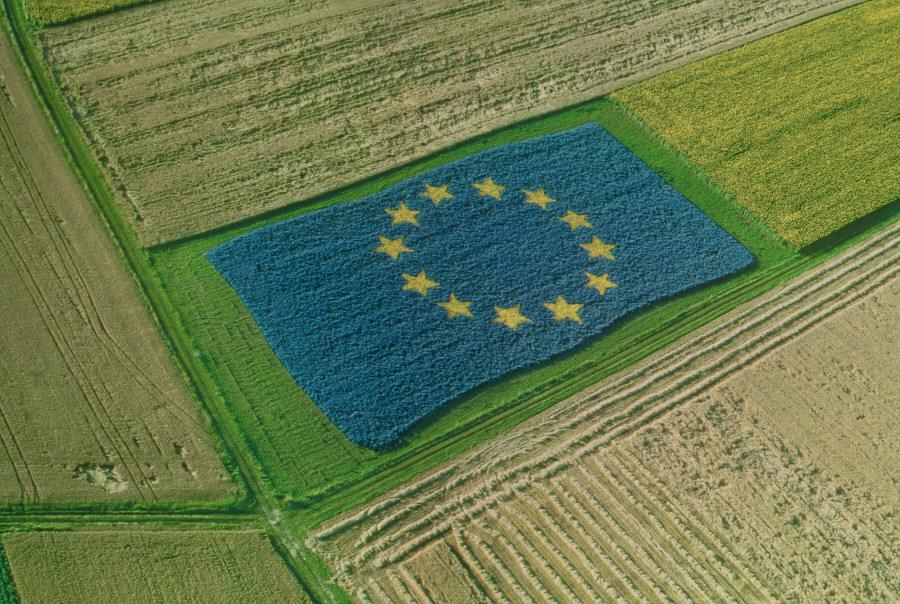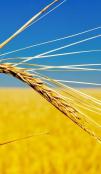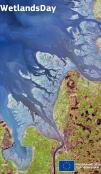EU SANCTIONS DO NOT RESTRICT EU AND THIRD COUNTRIES’ TRADE IN AGRIFOOD PRODUCTS

Contrary to Russia’s disinformation, the disruption of agricultural production and trade in Ukraine and the spike in global food prices is not caused by EU sanctions - but the very own actions of the Russian Government, such as:
-
- the blockage of Ukrainian ports;
- the deliberate destruction of Ukrainian agricultural facilities; and
- restrictions imposed on its own export of agricultural products and fertilisers.
Russia should put an end to these actions as this will immediately resolve the looming food crisis.
- EU SANCTIONS AND EXPORT OF AGRIFOOD FROM UKRAINE
- Agricultural products can be imported into the EU from Ukraine - and transferred to third countries!
There are no EU sanctions on imports from Ukraine whatsoever. Even products from the non- government controlled areas of the Donetsk and Luhansk oblasts can be imported, under certain conditions (if examined and approved by the Ukrainian authorities).
- Phytosanitary products, including herbicides, fertilisers and agricultural machineries can be exported from the EU to Ukraine without restrictions!
The restrictions on import of certain potash fertilisers under the EU sanctions on Russia and Belarus only apply to products imported to the EU and do not concern exports of them to Ukraine from the EU or from Russia. There is no cap or EU restriction for import of phytosanitary products as final products.
- Public financing or financial assistance for trade to Ukraine is not restricted!
Any EU company can invest and support agricultural production in Ukraine, except in the non- government controlled areas of the Donetsk and Luhansk oblasts, Crimea or Sevastopol.
- There are no EU sanctions targeting ancillary services for importing agricultural products into the EU from Ukraine and transfer them to third countries!
EU companies can transport by road, air and sea agricultural products from Ukraine directly to the EU and onwards to partners, including via Ukrainian companies or any other non- sanctioned non-Russian companies.
- EU SANCTIONS AND EXPORT OF AGRIFOOD FROM RUSSIA AND BELARUS
- EU sanctions cover only bilateral trade between the EU and Russia – not international trade!
EU sanctions have no extra-territorial effect. Third country persons and firms can import agrifood from Russia under EU sanctions if they do that entirely outside the EU.
EU’s sanctions excluded a limited number of Russian banks from the SWIFT network. Banking relations via SWIFT can still continue via the other Russian banks.
- Agricultural products in Russia are not targeted by EU sanctions!
EU sanctions do not prohibit EU businesses to purchase, import or pay for Russian agricultural products, provided that sanctioned persons are not involved. The EU has carefully avoided a direct and comprehensive ban on the import of Russian agricultural products.
EU Member States can grant access to EU ports of vessels flying the Russian flag, as well as entry to the EU of Russian road carriers for the purposes of importing or transporting agricultural products, including fertilisers and wheat, that are not subject to prohibitions.
- When restricted services are necessary for importing agricultural products from Russia (including via Belarus), EU sanctions provide for specific exceptions!
EU Member States can authorise Russian-flagged vessels access to EU ports and Russian road transport undertakings to operate in the EU if that is for trade in agricultural or food products, including wheat and fertilisers, if the latter is not otherwise prohibited. Public financing or financial assistance for trade by EU companies in the Russian agri-sector is also possible.
- Only a specific number of Russian and Belarusian banks – and not all – have been listed and/or de- SWIFTED
EU businesses can make and receive payments for trade in agricultural products via other Russian and Belarusian banks.
- EU sanctions also envisage several exceptions for humanitarian purposes
By way of example, EU Member States can authorise overfly of their airspace by Russian aircraft if that is required for humanitarian purposes.
EU Member States are also authorised to grant access to EU ports of Russian flagged-vessels, as well as entry to the EU of Russian road carriers for the purposes of importing or transporting agricultural products, including fertilizers and wheat, that are not subject to restrictions.
- Agricultural products and food, including herbicides, fertilisers and agricultural machineries, can be exported from the EU to Russia, provided that no listed persons are involved!
The cap and restrictions on certain fertilisers only apply to products imported in the EU and it does not concern exports of them to Russia or Belarus.
- EU asset freezes on Russian or Belarusian companies have minimum impact on the agricultural sector!
EU sanctions target those responsible for the brutal aggression of Russia against Ukraine. The involvement of the majority of those responsible in the agricultural sector is highly unlikely. The listing of some persons owning or controlling companies in the Russian fertiliser sector does not prevent them from using their products in Russia. EU sanctions also do not bind operators from third countries that choose to maintain commercial ties with Russia.





